Emerson College Community Celebrates Their Favorite Banned Books
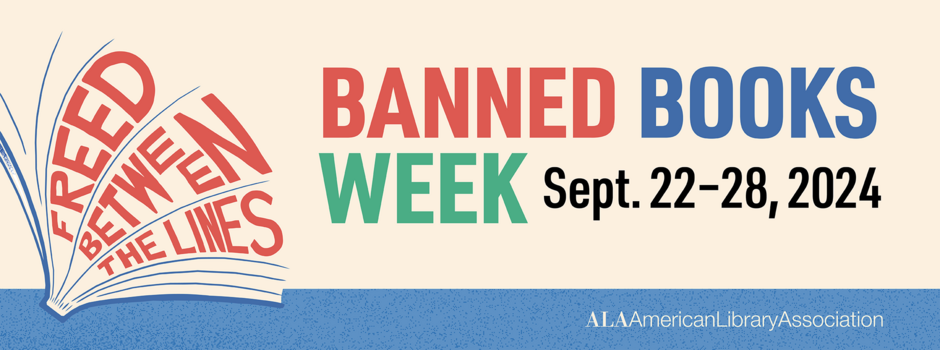
In honor of the annual Banned Book Week, Emerson College bibliophilists are celebrating their favorite targeted texts.
Last year, the Iwasaki Library created a banned books guide in support of a Banned Books Readathon in 2023 led by Writing, Literature & Publishing Professor and Interim Dean of Graduate & Professional Studies Kim McLarin and WLP Professor Wendy Walters. The Readathon was a response to growing movements to ban books at school and public libraries across the country.
“When a society begins to ban books, that society is in trouble,” said Professor Kimberly McLarin.
Like many other people (as you’ll read) Walters and McLarin both said their favorite banned book is Beloved by Toni Morrison, which has long faced book bans across the country.
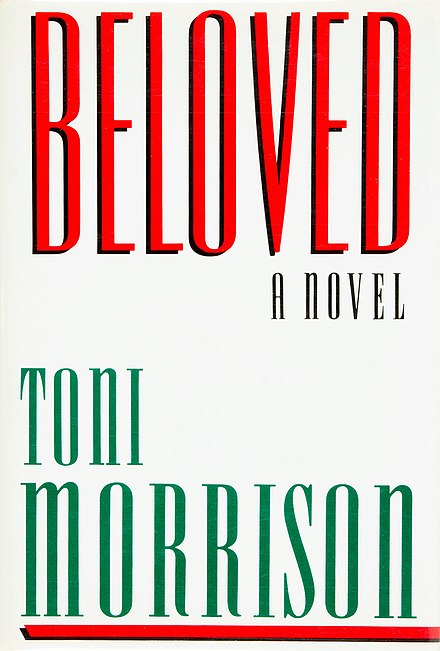
“The things that go on in Florida and the things that go on in some remote library in Pennsylvania are just little bellwethers, little alarms about what can happen on a wider basis, and it requires pushback all the time,” said Walters.
This week, the library also has a display of banned books within the Iwasaki’s collection, said Iwasaki Library Executive Director Cheryl McGrath. Check out the Iwasaki’s website for more info about banned books in its collection.
Emerson Today asked community members to share their favorite banned books.
Emma Brady ’25
I love Me and Earl and the Dying Girl by Jesse Andrews because it was the first book I ever read that made me feel like I learned something about humanity, and it’s a truly beautiful and honest portrayal of friendship.
Dan Crocker, Iwasaki Library Electronic Resources Coordinator
I’d like to recommend everyone read Rainbow Rowell’s beautiful and sincere story of young love and navigation around love, loss, and interracial identity — Eleanor & Park. And I’d like to encourage all to oppose banning books in each and every manner you can.
Sophia Duffy ’25
My favorite banned book (of all time) is [Suzanne Collins’s] The Hunger Games. This book has such an important place in my heart because I read it when I was in middle school and discovered for the first time how much fun reading can be! It wasn’t until I got a bit older that I reread the book and saw it in an entirely different way. It’s one of those rare books where it actually grows with you, and you see two different perspectives on it as a kid and an adult.
Katie Ingegneri, Senior Marketing Writer
One of my favorite banned books is Cat’s Cradle by Kurt Vonnegut. While ostensibly about the dangers of scientific advancement, in service of war and divorced from society’s true needs, its core message is one of humanism: the notion that only by acknowledging each other’s humanity will we be able to build a just and peaceful world.
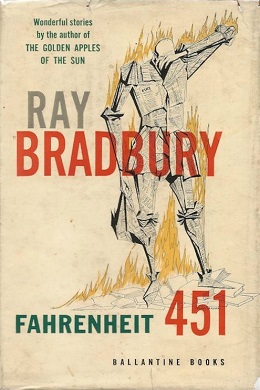
Madison McMahon ’27
My favorite banned book is Fahrenheit 451 by Ray Bradbury. I read this book my freshman year of high school and I think this is the book that showed me novels are more than just entertainment and have a real-world impact. Honestly, it is what made me pursue novel writing as a career. Fahrenheit 451, ironically, is about censorship and it asks a lot of interesting questions such as: would you rather be ignorant but happy, or informed but depressed? This really challenged me to reflect on my own relationship with books and how they affect my views on the world. As technology becomes more and more prevalent, like Bradbury predicted in 1953, this is a very important and relevant book to keep in our minds.
Bela Osgood ’27
Overall, I think there is an extreme difference between banning sexually explicit content from elementary school libraries and not allowing a high school student to do a book report on The Handmaid’s Tale [by Margaret Atwood]. These things are not one and the same and we should not claim they are. Trying to forget historical or current struggles because they are hard conversations to have allows history to repeat itself in negative ways.
1984 by George Orwell: Nothing proves the point of this book more than banning it.
I Know Why the Caged Bird Sings by Maya Angelou : I loved everything about this memoir. Although the content is unsettling, it is Angelou’s reality and her message could be applied to so many individuals and the hardships they experience around the world. Angelou’s meaning behind why the caged bird sings begs the question, How can we move forward without learning about the struggles and oppression of others? This is one of my favorite books of all time. Maya is a true poet and it shows in the ways she makes the reader feel for her in every way possible through powerful metaphors.
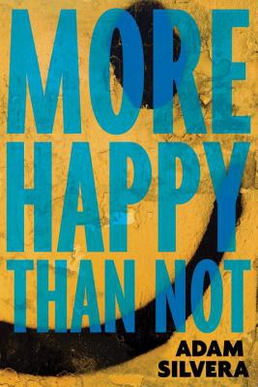
Anthony Rodriguez ’21, Assistant Director, Student Success
My favorite banned book is More Happy Than Not by Adam Silvera. I read this book at 15 years old, and it was the first time I saw a gay Latinx character as the lead. I didn’t realize until halfway through reading that I was seeing this for the first time, and it made me tear up. While this story is sad, it holds true to the hate we still see in our society. Asking what would it take for us to erase the memories of who we truly are, and to be someone we are not. And is it worth it? This is an important book in queer literature, especially for young people. It will always be on my recommendation list.
Barbara Selmo, Director of Graduate Admissions
I like so many “banned books.” One of my favorites is Beloved by Toni Morrison. It is a masterful piece of writing, an intense and absorbing story by an author completely in command of plot and language. Therefore, as the reader, I could give myself over to it securely. The multiple strands of story – about Sethe, about Sethe and Paul D., about Denver, about Beloved (real and ghost), about slavery, trauma, abuse, family -make this book so important. I cried when I finished it, long and in joy and sadness. Few other books have moved me that way.
Jerald Walker, Writing, Literature & Publishing Distinguished Professor
To Kill a Mockingbird [by Harper Lee]. It’s one of my all-time favorite books. I love the narrator’s wit and humor, so much so, in fact, that I used her as model for my second memoir, The World in Flames.
Eva Windler ’24
I really loved Beloved by Toni Morrison. I read it for American Women Writers at Emerson a few semesters ago and found it incredibly powerful. The story unravels in such an engaging way—Morrison, of course, has an admirable grasp over structure and tension.
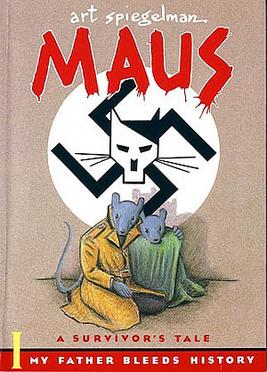
Ilona Yosefov, Instructional Technologist
Reading Maus [by Art Spiegelman] in my 20s did something to me. By then I didn’t think I could be surprised because I have read countless books and watched many films about the Holocaust, but I was wrong. The decision to illustrate both victims and perpetrators as cartoon animals is one I still think about. Are these artistic choices more inviting to people who might not want to engage with this heavy subject otherwise? Perhaps. I found the painful moments more painful because they were coated in a relatively disarming aesthetic. I was also deeply affected by the exploration of second-generation trauma.
Categories